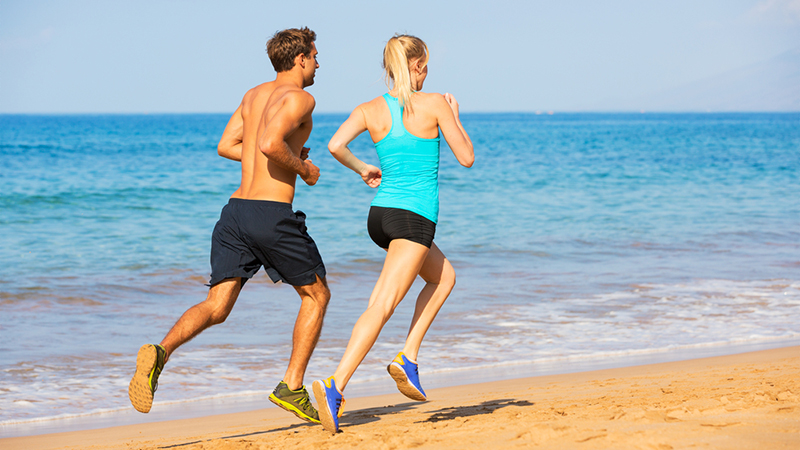

When the temperature rises, friends, festivals, beach, barbecues and family also come around, and it means that running sometimes gets forgotten.
Although it is necessary to take a break at the end of the summer racing season, stopping all forms of training until university starts again is not the wisest option.
WHY?
You’ve trained the whole year to get new flying PBs at LCAS. Why then decide to stop all the effort and have to start from scratch when the winter season begins?
When you stop training, your body begins “detraining” and goes back to pre-training state of fitness, so all your hard work is lost. How frustrating ! For this reason, keeping training throughout summer, even at a lower intensity, will make getting back into running much easier than re-starting from zero in September.
HOW?
Training over summer is a lot easier than most people think.
If the word “training” itself is the issue and brings back memories of rainy nights doing laps around the track, think of it as an energy boost program instead or as the way to get even greater PBs next year.
Time can also be the problem as fitting a run in between the beach, internships, and sleep is often a challenge. But you can change your activity and adapt it to the location you are in; visit new places by walking or hiking, go swimming at the beach, try rock climbing, or even play a game of football to keep the EURO spirit… there is no limit and it will all contribute to keeping you fit.
Now, you have no excuses to forget to be active. Staying fit does not require carrying your spikes everywhere and having access to a track. If you want to continue running, simply take your running shoes and opt for a mix of jogs, long runs and intervals to keep cardio up and some simplified circuit training.
A week of training can look like this:
| Session 1 | Session 2 | Session 3 | Session 4 | |
| Cardio | 30-40 min run | 20min + (1min fast, 3min jog)x6 +10min cool down | Long run 50min or more | |
| Circuit | Post run core | 10 squat jumps, 15 mountain climbers, 15 leg drops, 20 lunges, 20 Russian twists –repeat 4 times | Post run core |
This is just a rough example for you to adapt and base your own week of training on. Add more sessions if you have time, but try to not do less than three cardio sessions of 40 minutes a week.
Very importantly, do not forget about cool downs and stretching. Coming back with an injury wont contribute much to starting the new season strongly.
With these tips enjoy summer and stay fit!
